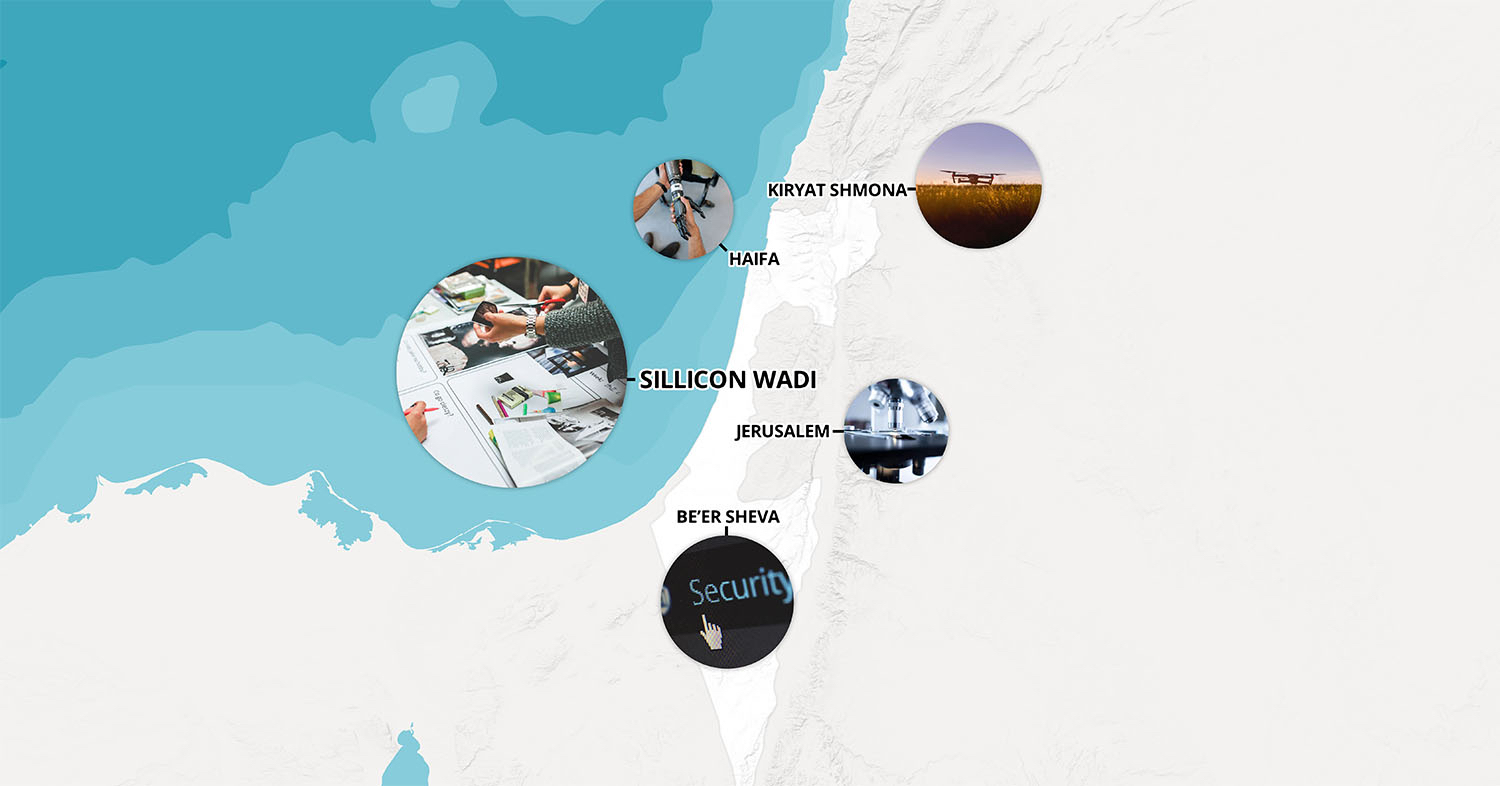In recent decades, Israel has emerged as one of the major technological powers in the world. With fewer than nine million inhabitants, Israel has nearly five thousand tech companies. Cisco, Paypal, Google, Facebook and Intel are large companies developing new products in Silicon Wadi and all over Israel. Due to the friendly climate for startups and international tech companies, Silicon Wadi is gaining prominence and can be considered as Israel’s version of Silicon Valley. Of those thousands of startups, there are also about 800 social startups. This article explores how a small country like Israel has grown into a “startup nation” and which social entrepreneurs are stealing the show.
Develop yourself by doing business
A good way to start with exploring why Israel is called ‘startup nation’ is by looking at their unicorns. Israel is playing a more important role than ever with 20 companies in the ranks and 11 added in just the past year. Investors all over the globe are drawn towards the small Middle-Eastern country.
Israeli ambassador to The Netherlands, Naor Gilon, shares the secret of the large number of startups in Israel: “The human capital of Israel is the main reason that we are number one worldwide. It’s currently like this and it always has been. The people who came to Israel had big dreams, but few resources. The government created an ecosystem as soon as possible so that the urge of immigrants and other Israelis to do business was not curbed by preconditions.”
Ran Natanzon – head of innovation at the Israeli Ministry of Foreign Affairs – adds: “Our history is a factor, but there are also contemporary factors that make it attractive for Israelis to start a business. This may, for example, be in tech, but also as a social entrepreneur. One of those factors is our education system: almost all courses are interdisciplinary. Originally, this was not the ideal, but it was forced out of necessity given the low number of Israelis attending university. To earn a right to exist as a university, training courses were combined. In this way, they did get enough students. Nowadays we don’t want anything else and reap the benefits. ”
Naor Gilon continues, “Another reason is some sort of by-catch. There is still conscription in Israel. The Israeli Defense Force is one of the most high-tech armies in the world. When you come out of the military, you bring that experience with you. Also, during your time in the army, you can work on the first steps of your startup. ” Natanzon: “Yet, I believe the main reason lies in Jewish culture. It is deeply anchored in Jewish culture to leave a place better than you have found it, and that certainly applies to the earth. Jewish people – who form three-quarters of the Israeli population – are inherently focused on innovation and development and you do that by doing business. ”
Ran Natanzon, who works in Jerusalem, briefly sketches the map: “In Israel, you have an above-average number of startups everywhere, often in tech. In the larger cities, such as Tel Aviv and Jerusalem, there are relatively many social startups. Cross-fertilization between tech startups and social entrepreneurs is also very interesting and inspiring. ” The hub in Be’er Sheva focuses mainly on cyber, Haifa on medical innovations, Kiryat Shmona – a hub in the North – mainly on food and agri-tech, Jerusalem on biotech, while Silicon Wadi, around Tel Aviv, has all of the above.”
“Cross-fertilization between tech startups and social entrepreneurship is very interesting and inspiring.”

Social entrepreneurship as a growing movement in Israel
The notion of leaving the world behind better than you have found it can be seen in the upcoming scene of social entrepreneurs in Israel. Gilon: “For example, Israel is committed to achieving the Sustainable Development Goals. All kinds of goals are pursued by different organisations.”
It is important to note that issues such as sustainability and the energy transition are less important in debates in the Knesset (the Israeli parliament) and the rest of Israeli society. Security and peace still are deemed as most pivotal. Gilon: “The debate in Israel cannot be compared to that in Europe. We have other topics that require priority.” However, Natanzon claims: “We are now in a very important phase. Social entrepreneurship is a growing movement in Israel. The new generation understands that there are several ways to make “profit”. Money appeals less to this new generation”
“The new generation understands that there are several ways to achieve profit.”
Gilon underlines a social enterprise with a clear Dutch link – Save a Childs Heart – brings children with heart problems without access to medical aid (also from the Palestinian territories) to Israel for high-tech heart surgery. Gilon adds: “This initiative is both high-tech as well as with a big heart.”
Another initiative comes from Israelis who were inspired by the Jewish Orthodox people, a group which is often focused on their own community. Many Orthodox and Ultra-Orthodox often have fewer financial resources because they devote their lives to studying the Torah (ancient Jewish religious scriptures) and have larger average family sizes.
They depend on help from the government and help from each other. Gilon is very enthusiastic about how they inspire entrepreneurs by the way they live: “They have a very nice system, where certain resources are freely available to everyone in the community. For example, the fact that you can borrow books from a shelf on the corner of your street. Entrepreneurs took over this idea and initiated it in all of Israel’s large cities. These entrepreneurs have also made this possible for medical equipment. “I recently picked up a wheelchair for my mother there,” says Gilon. This line of thought goes very far. Israelis also share their kidneys. Gilon bounces up: “Recently, the new Israeli Minister of Culture and Sport gave his kidney away. He didn’t even know to whom the kidney could end up with. I could have been a Jew or an Arab. That does not matter.”

Digital and social entrepreneurship
At the crossroad between digital and social, ‘TechForGood‘ immediately catches the eye in Israel. TechForGood uses innovation, technology and entrepreneurship to achieve the UN’s Sustainable Development Goals. Their mission is to enable stakeholders to work together to develop and implement innovative and scalable solutions. Besides innovation, it is also about investing, international programs and an annual conference: The Israel Impact Summit.
A good example of an Israeli tech startup with a clear social branch is Orcam. OrCom is the initiative of the founders of Mobileye, a Jerusalem-based startup that focusses on driver visual assistance and which was acquired by Intel in 2017. Their new startup uses technology to help people with visual impairments live independently. The MyEye 2.0 is a portable device that delivers sound and can be mounted on glasses. Mobileye is an eye-catcher in Israel, but it is certainly not the only company operating at the intersection of tech and social entrepreneurship.
Many people may not directly associate Israel with innovation, technology or social entrepreneurship. Therefore, Naor Gilon and Ran Natanzon underscore the importance of approaching Israel like any other country: a place with great challenges and (social) entrepreneurs who do not shy away from finding the right solutions.
Reacties